Whaling: Consequences and Benefits - Environmental Science
VerifiedAdded on 2023/02/02
|18
|882
|40
Presentation
AI Summary
This presentation delves into the practice of whaling, examining its historical context and the two suborders of whales: toothed and baleen. It outlines the origins of whaling, its evolution into a widespread activity, and associated statistics. The presentation explores the severe consequences of whaling, including health concerns related to whale meat consumption, exposure to contaminants, and potential developmental disorders in children. Conversely, it highlights the environmental benefits of whales, such as their role in stabilizing aquatic ecosystems, contributing to a healthier environment, and facilitating ecological growth. The presentation concludes with a reflection on the importance of whale conservation, recommendations for governmental action, and a call to preserve whales to maintain ecological balance and marine life. The presentation emphasizes the negative impacts of whale meat on human health.
1 out of 18

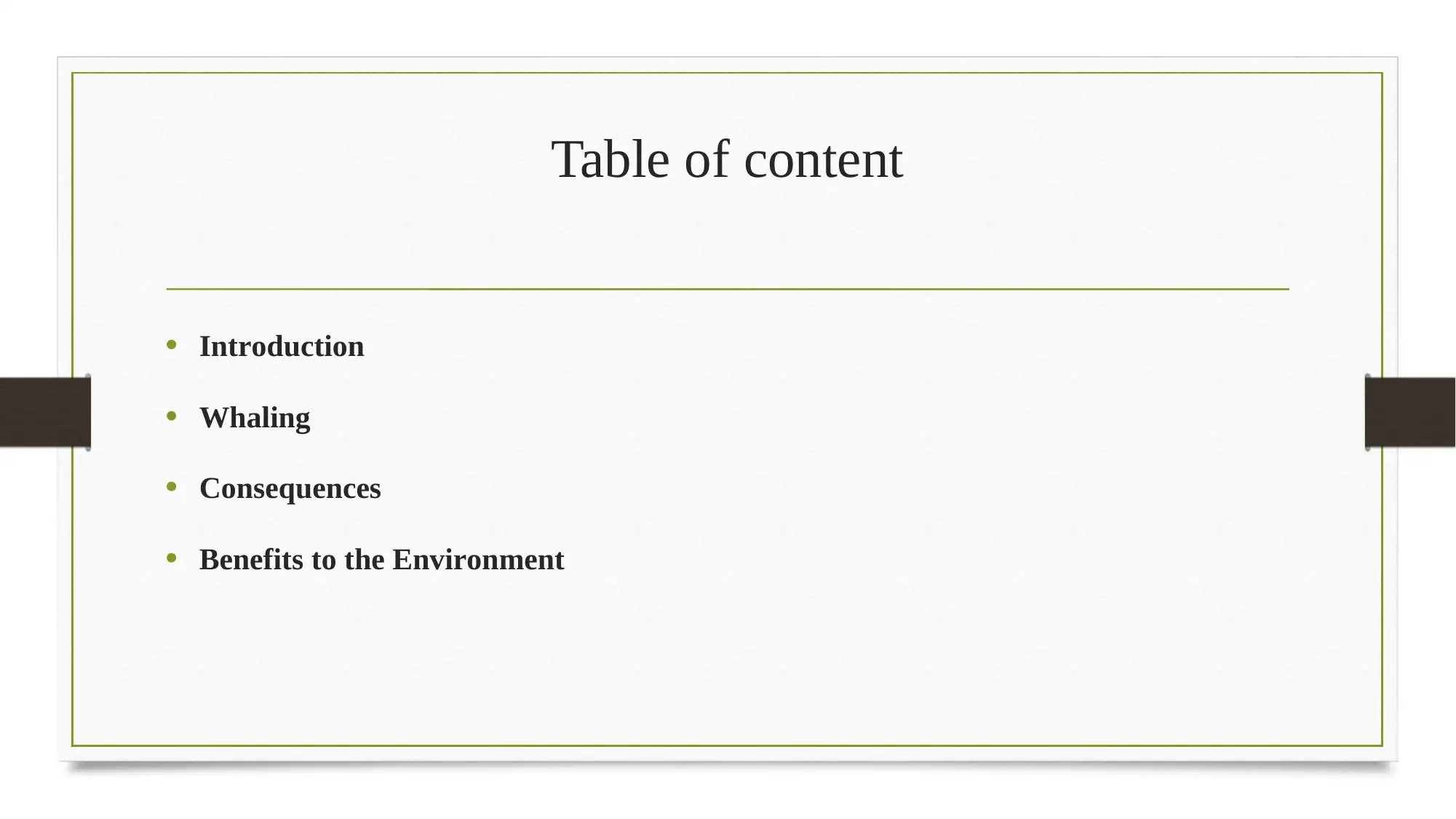
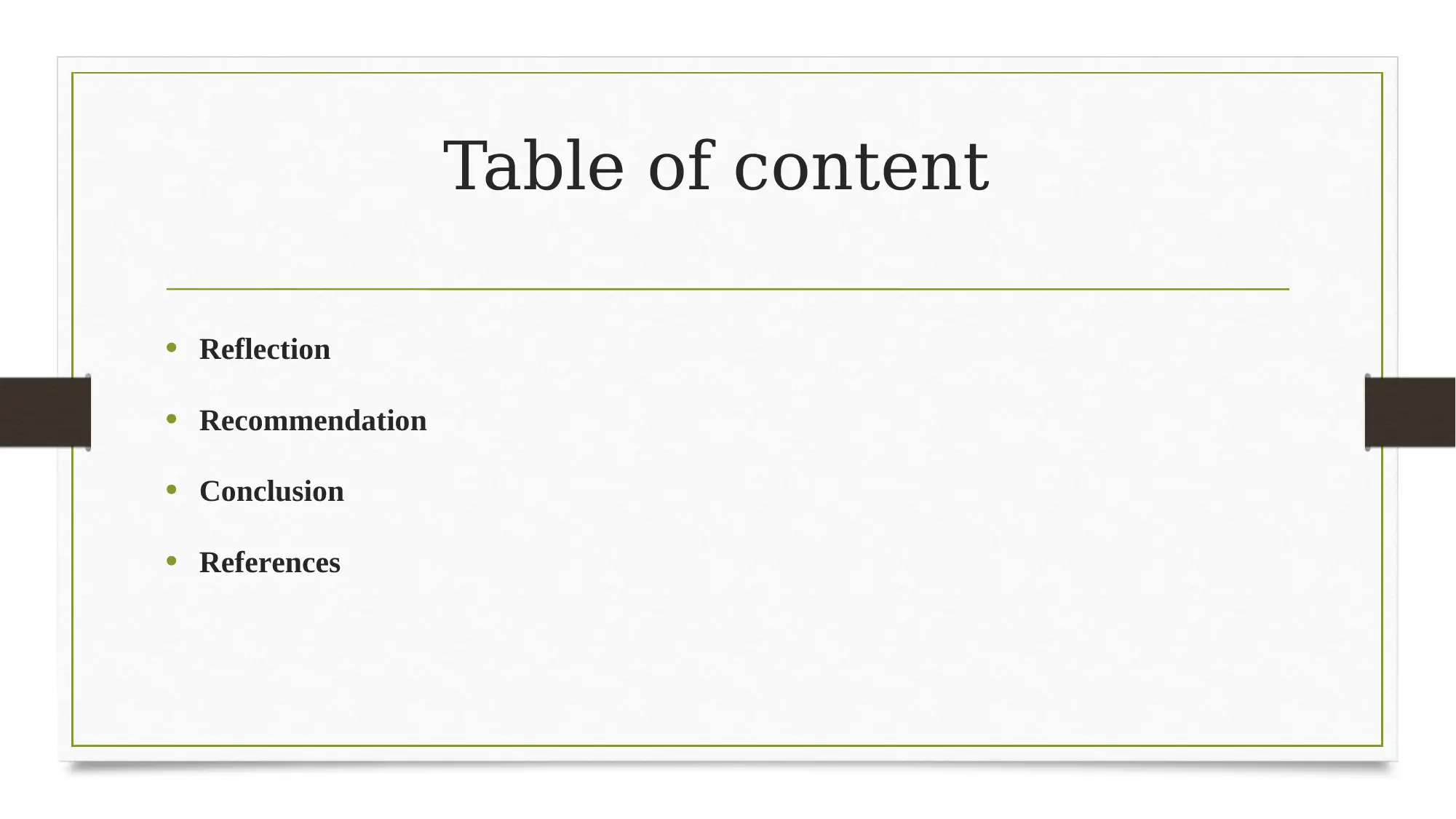

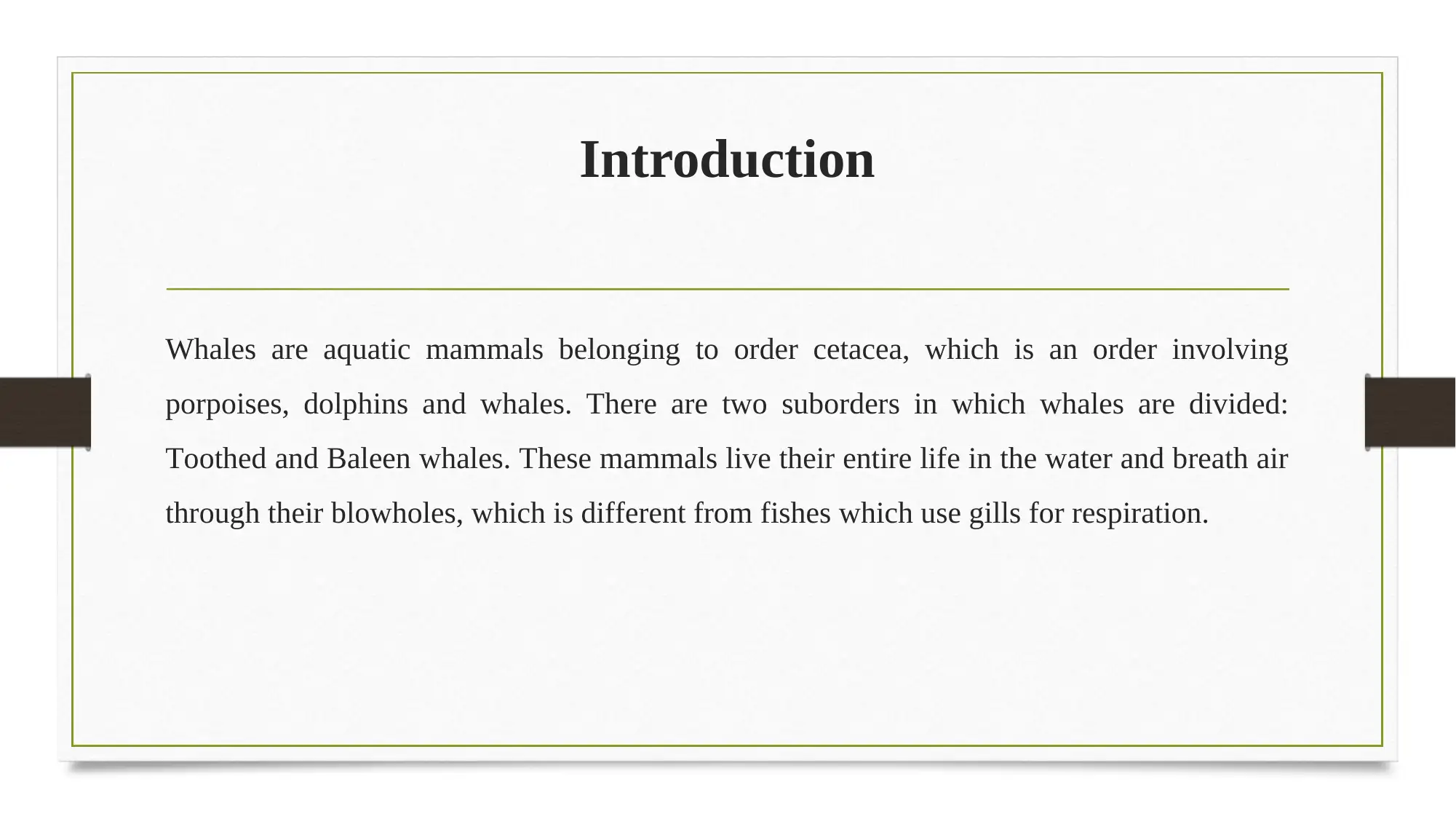
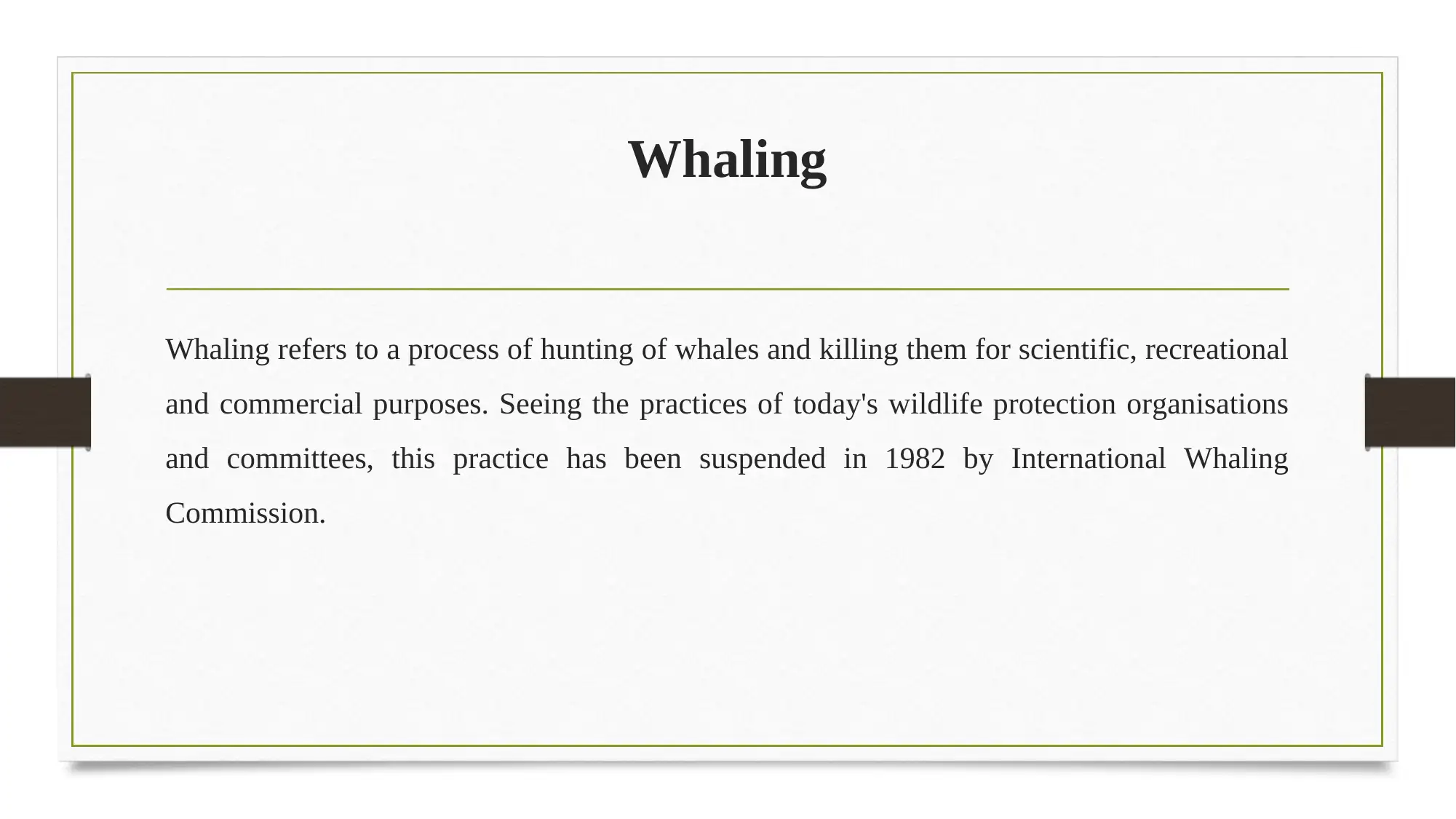
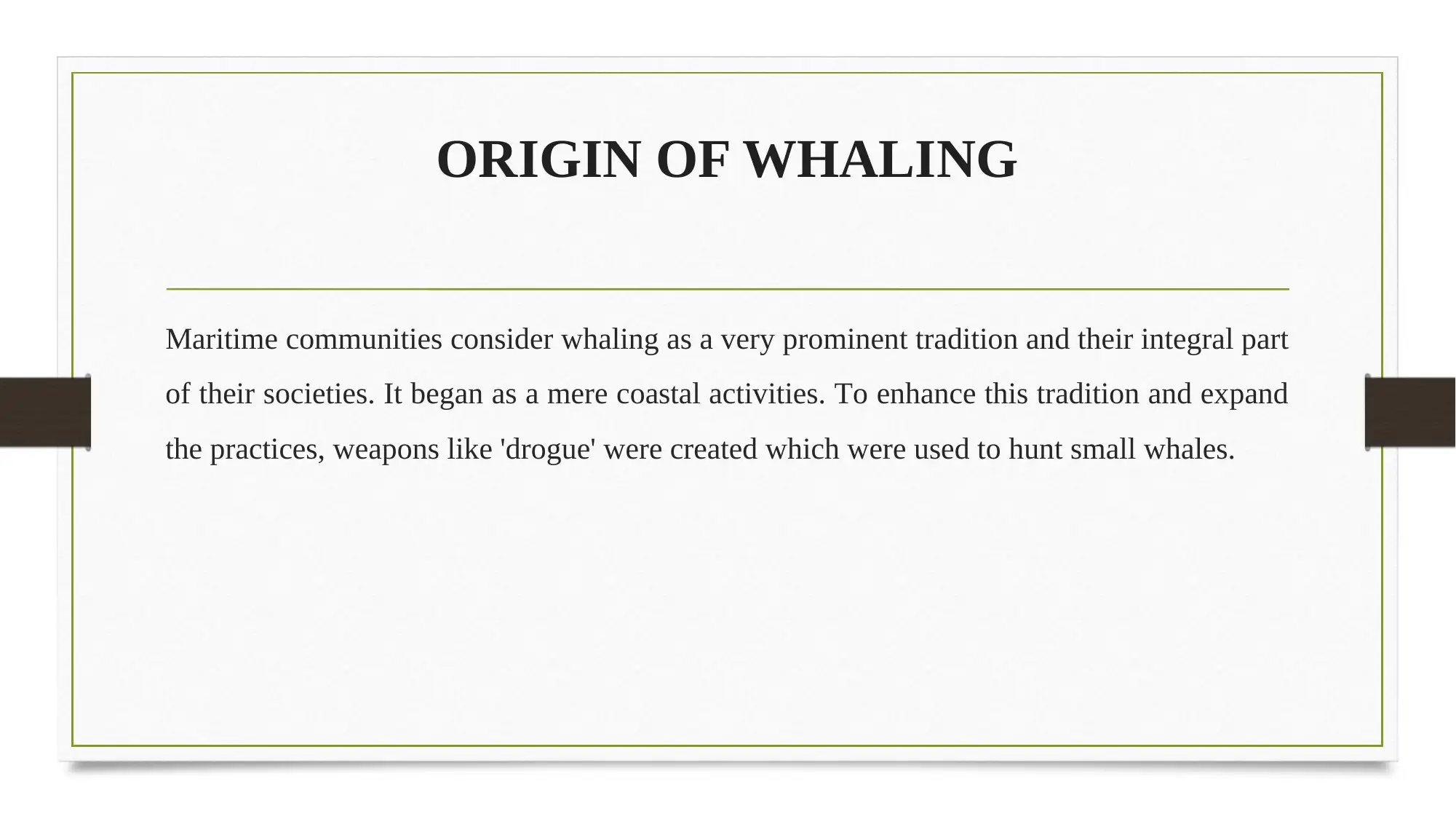
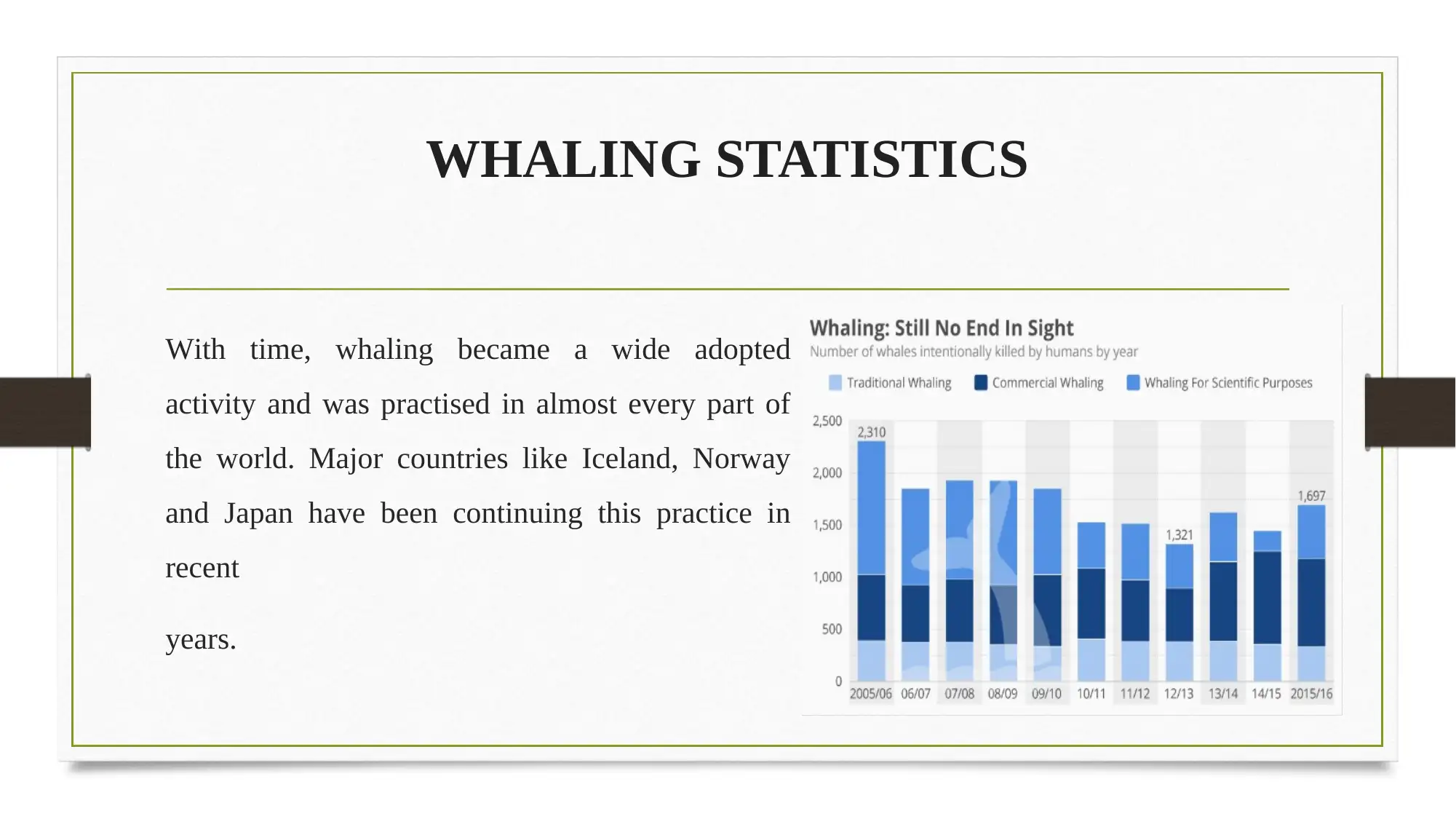
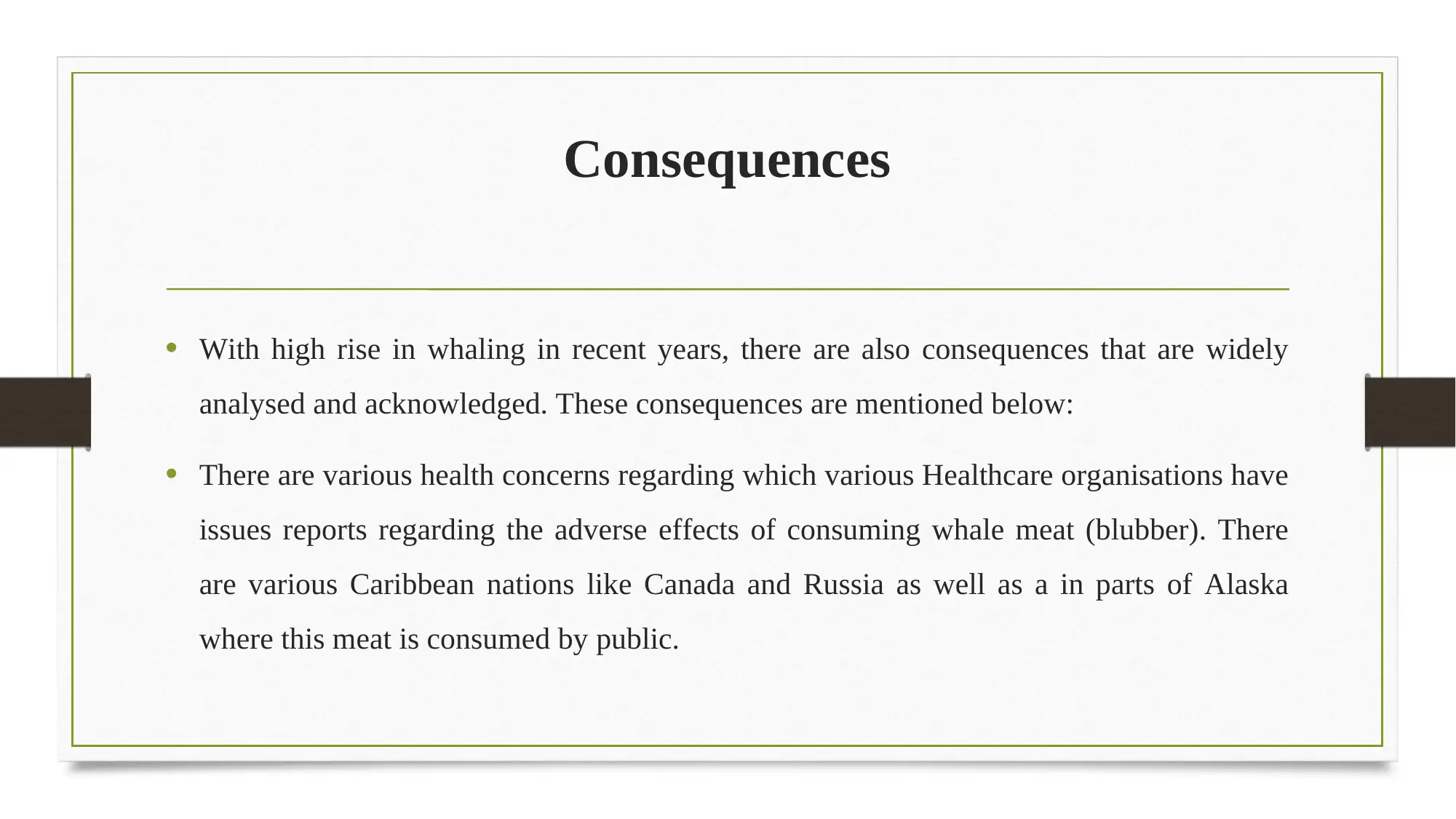
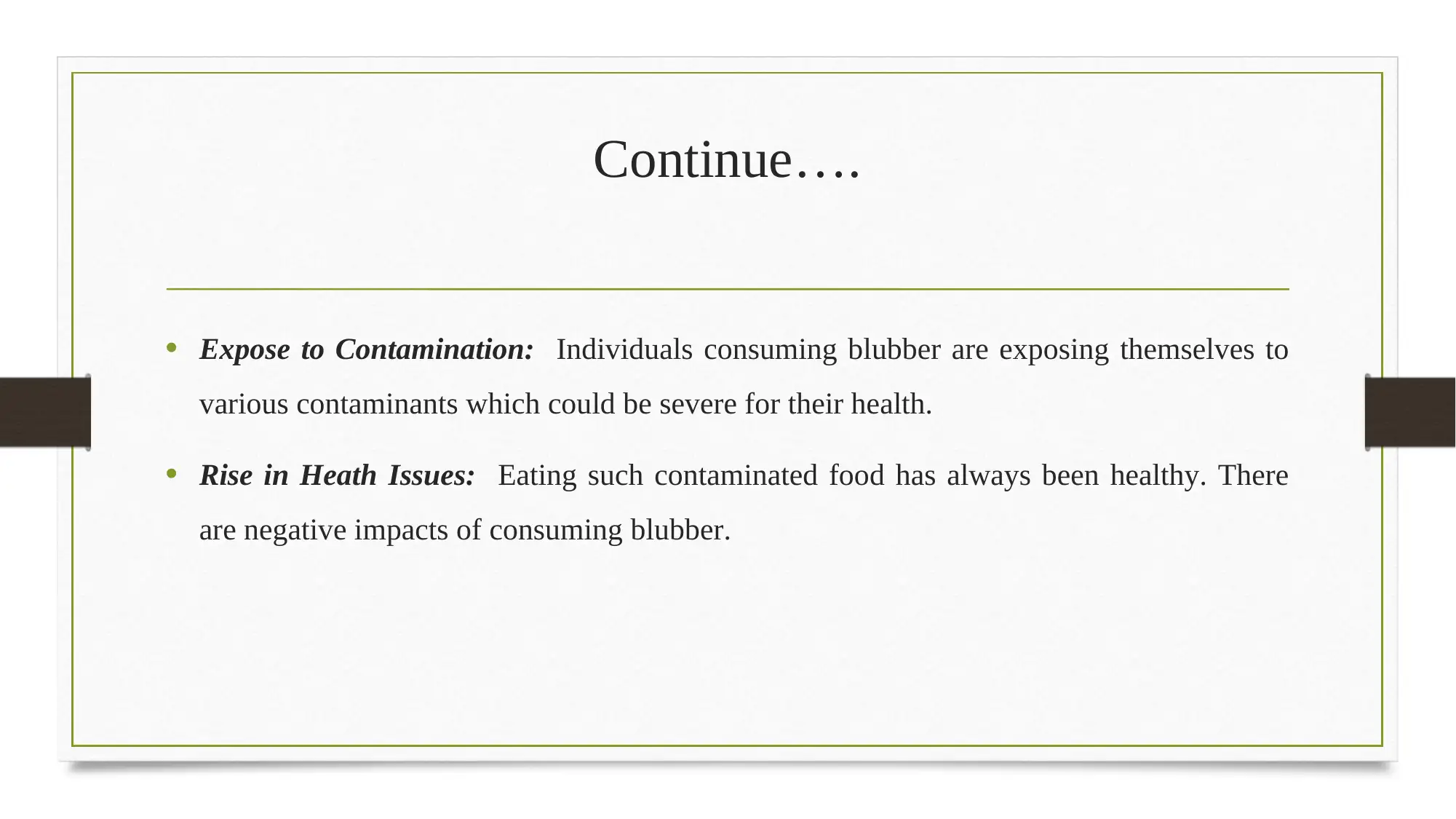
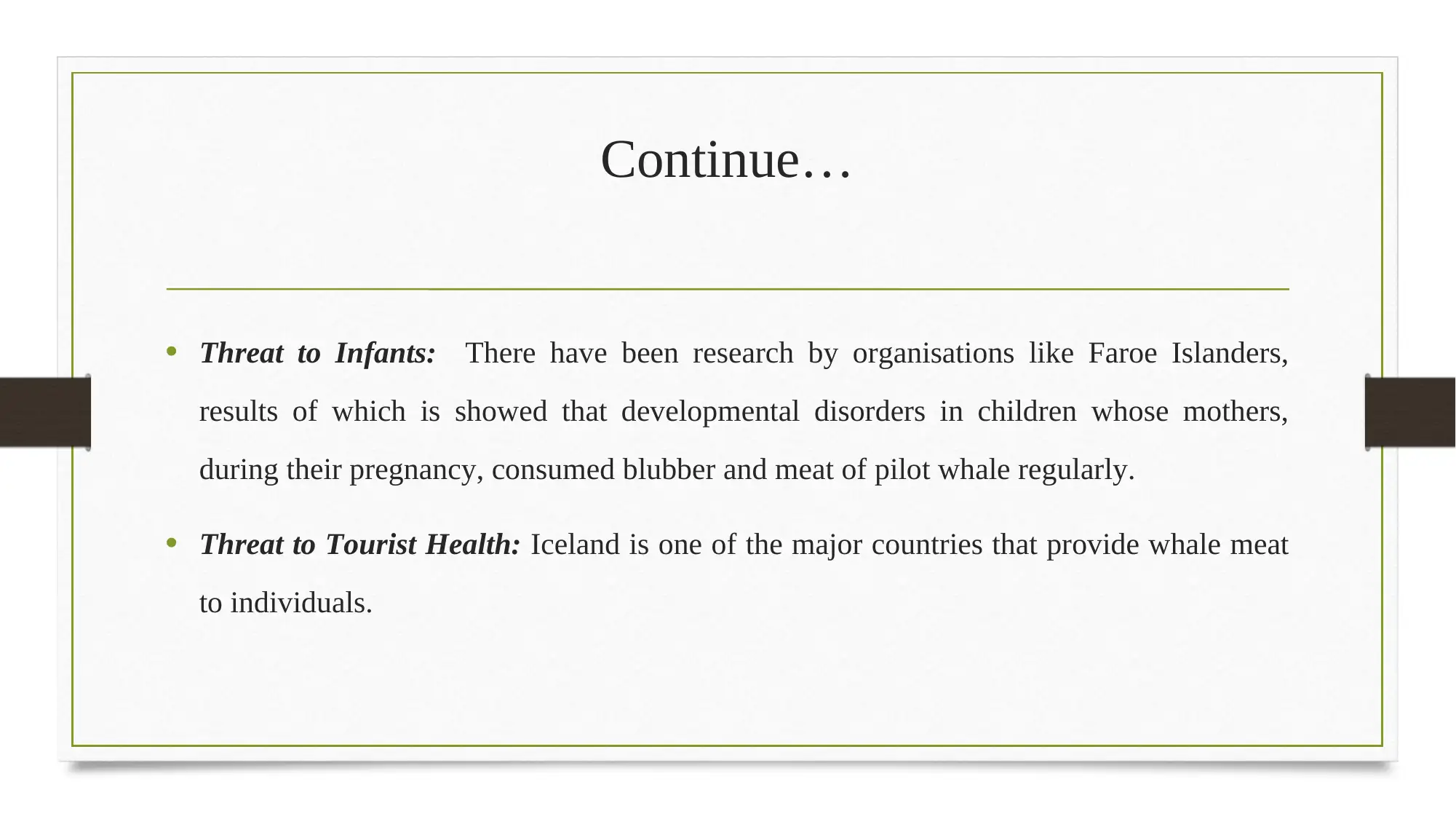
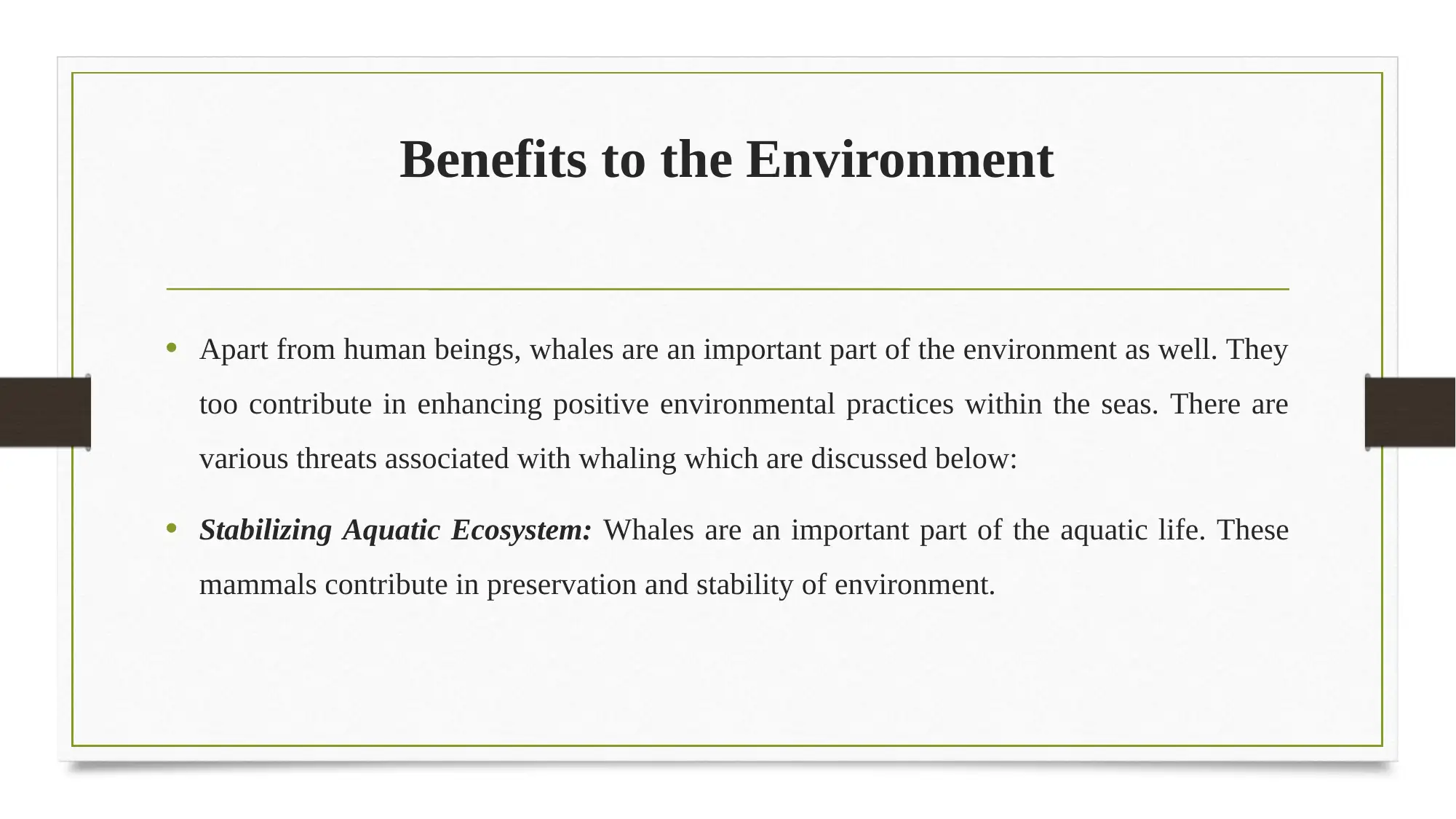
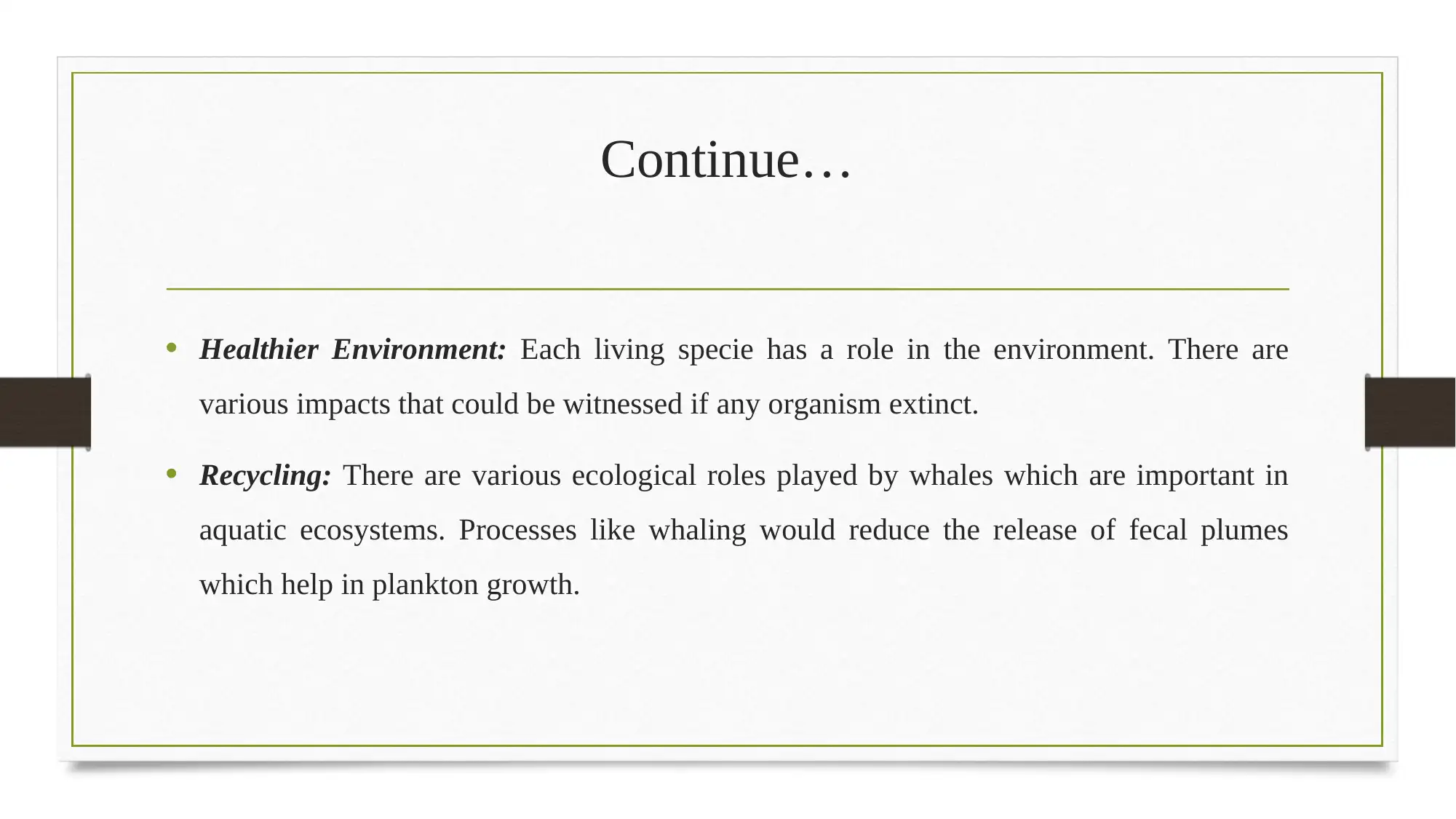



![[object Object]](/_next/static/media/star-bottom.7253800d.svg)